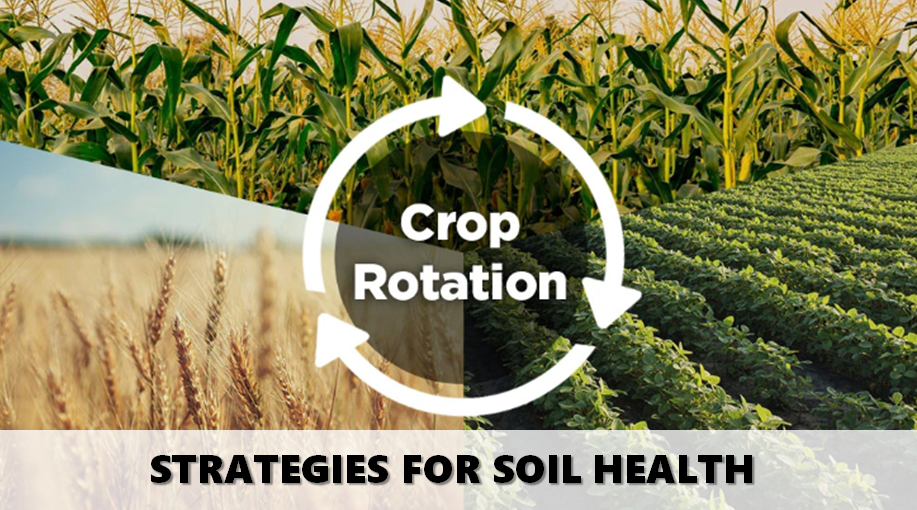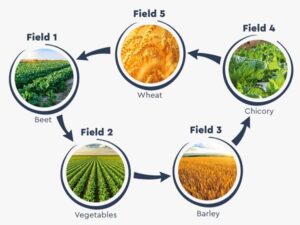Home » Navigating Crop Rotation: Strategies for Soil Health

For centuries, farmers have understood the importance of crop rotation. It’s not just about preventing the same pests and diseases from becoming entrenched in the soil – it’s about nurturing the very foundation of farm’s productivity: the soil itself.
A healthy soil is teeming with life, a complex ecosystem of beneficial bacteria, fungi, and other organisms that break down organic matter, provide nutrients to plants, and improve soil structure. But conventional farming practices, with their heavy reliance on synthetic fertilizers and monoculture (growing the same crop repeatedly in the same field), can disrupt this delicate balance, leading to soil degradation and declining yields.
Enter crop rotation, a powerful tool in the sustainable farmer’s arsenal. By strategically planting different types of crops in the same field over time, the farmers can:
Here Learn about Aeroponics Agriculture

The ideal crop rotation plan for your farm will depend on a variety of factors, including your climate, soil type, and the crops you want to grow. But here are some general tips to get you started:
Learn about New Technique of Farming
By embracing crop rotation and other sustainable practices, you can build healthy soil that will nourish your crops, your farm, and ultimately, our planet. Remember, healthy soil is the foundation of a sustainable future for agriculture. Let’s work together to protect it and nurture it for generations to come.
Agricultural education acts as a driving force for positive change in the farming sector. By providing farmers with knowledge and resources, it enables them to adopt sustainable practices, boost productivity, and overcome modern challenges. Lingaya’s Vidyapeeth, the premier B.Sc & M.Sc Agriculture college in Delhi NCR, offers specialized education in modern farming techniques, agribusiness management, and sustainable practices, empowering future agriculturists for success.
Dr. Ravi Prakash Mishra
Asso. Prof./ Head
February 24, 2024RECENT POSTS
CATEGORIES
TAGS
Agriculture Agriculture future AI Architecture artificial intelligence BA English BA Psychology BTech CSE BTech Engineering Business management career Career-Specific Education career guide Career Opportunities career option career scope Civil engineering commerce and management Computer Science Computer science engineering Data science degree education Engineering Engineering students English Literature english program Exam tips Fashion Design Fashion design course Higher Education Journalism journalism and mass communication law Law career Machine Learning MA Psychology Master degree mathematics MBA Mechanical Engineering Pharmacy Psychology Research and Development students
University Address: Nachauli, Jasana Road, Faridabad, Haryana
Toll Free: 1800-120-4613
Mobile : 8447744303 | 8447744304 | 8447744306 | 8447744309
Address: C-72, Second Floor, Shivalik, Near Malviya Nagar,
Above HDFC Bank, New Delhi 110017
Ph.No. - 011-46570515 / 45138169 / 41755703 / +91-7303152412
Jagmani Kutir, Ground Floor, Road No-1, Rajeev Nagar,
Near Darbar Marriage Hall, Patna-800024, Bihar
Contact No: 9818352069/8130120095
Mail: [email protected]
Copyrights © 1998 - 2025 Lingaya's Vidyapeeth (Deemed To Be University). All rights reserved.
It is important to note that the following email IDs and domains are fraudulent and do not belong to our university.
LV only conducts physical/online verification of any document related to examination on the following email id: